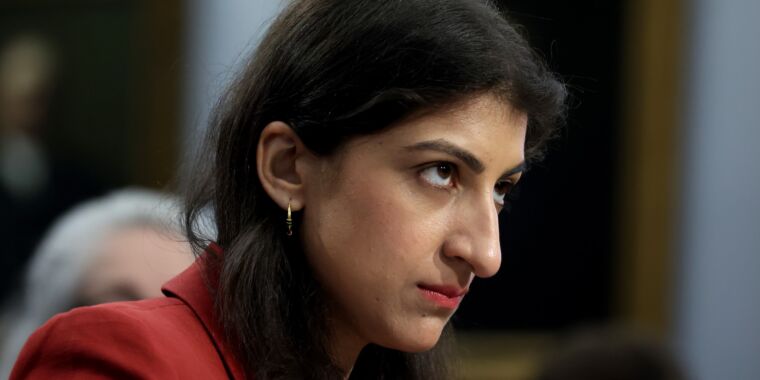
Amazon founder Jeff Bezos speaks at an event to unveil the Kindle 2.0 in 2009. Bezos founded the company in his Bellevue, Wash., garage. 30 years ago on July 5, 1995.
Mario Tama/Getty Images/Getty Images North America
hide title
change the subtitles
Mario Tama/Getty Images/Getty Images North America
[Editor’s note: Amazon is among NPR’s financial supporters and pays to distribute NPR content.]
30 years ago today, Jeff Bezos founded an online bookstore in his garage.
What Bezos eventually named Amazon is now one of the largest companies on earth—one of the few valued at $2 trillion.
Alina Selyukh covers the company on NPR’s business desk. She spoke with NPR’s Andrew Mambo about how Amazon swallowed up most of the Internet to become the “everything store.”
This interview has been lightly edited for length and clarity.
Highlights of the interview
Andrew Mambo: So let’s talk about the man who started it all, Jeff Bezos. What was he doing in 1994?
Alina Selyukh: Bezos was an investment banker on Wall Street, and he really wanted in on the dot-com boom. Picture a guy with pale hair, wearing khakis, driving a Honda. He was a very reserved guy, but he was very intense and focused. His next idea for the company name was actually relentless.com – if you type in relentless.com, it still takes you to Amazon.com.
Bezos wanted to build the store of everything, and he did.
Mambo: It’s worth reminding people – Amazon started selling only books.
Selyukh: Yes. He started with books because they were relatively cheap, indestructible…sturdy enough to transport. And there are only millions of them, so you can sell a lot of titles.
Mambo: So how did it go from a bookseller to a global e-commerce giant?
Selyukh: Well, Amazon bought a lot of other companies: software, robotics, grocery stores. For a long time, it earned a sales tax increase — as an online retailer, Amazon didn’t collect sales tax for most of the country for about two decades. Also, Amazon pumped all of its money back into Amazon. It famously delivered many years of unprofitability without pressure from investors.
And then Amazon made transformative products – think the Kindle eBook reader, the smart speaker. It made some pretty transformative business decisions like opening up its marketplace to small businesses… now, these small businesses actually sell most of the things you find on Amazon.
And Amazon put a laser focus on two-day and then same-day shipping, and then started charging shoppers a membership fee to get in. Now, enough subscribers pay for Amazon Prime to populate the eighth largest country on Earth.
Mambo: In recent years, we’ve also seen a lot of coverage about the harsh working conditions in Amazon’s warehouses. What is the human cost of building a company like Amazon?
Selyukh: Amazon is now the second largest private employer in the US, just behind Walmart. That’s 1.5 million people who make this company run. And most of them are people in warehouses and shipping centers, packing and delivering your stuff, often for minimum wage or just above minimum wage. It’s hard, physical work.
This has led to a new chapter of sorts in Amazon’s history, the merger drive. Amazon is really aggressively fighting union campaigns. So far, one warehouse has actually merged in New York, but Amazon still refuses to recognize the merger and two years have passed.
Mambo: So where is Amazon today? Now that they are a major player in so many different industries, what comes next?
Selyukh: Amazon is in its 30s. His knees are a little creaky and he’s feeling a little bloated! It actually grew quite a bit during the pandemic and is now reducing some of its landfill footprint.
I think there is a big technological challenge for Amazon, which is to catch up in the AI race. But really big, Amazon faces a federal antitrust lawsuit that could try — albeit very much in theory — to break up the company. The lawsuit accuses Amazon of strangling rivals, driving up costs for both sellers and buyers over time. But this case will take years.
You have some sellers who object to Amazon’s fees and restrictions. You have some workers who object to the speed and conditions.
But Amazon’s main defense through all this has long been that customers trust the brand, love the brand. So it will be interesting to see how Amazon is able to maintain that trust. Is it able to avoid fake reviews, fake products, inflated prices, search frustrations and stay ahead of the competition?


